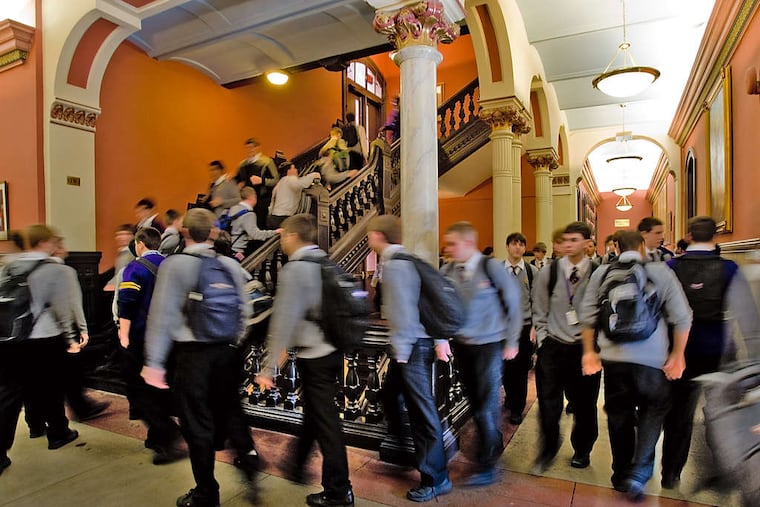Pennsylvania’s secret school tax is about to get raised again | Editorial
The Educational Improvement Tax Credit allows corporations to help underwrite tuitiions to private and parochial schools instead of paying their tax to the state.

It’s not hard for property owners in Pennsylvania to find out what portion of their tax bill goes to schools. They may think that’s all they pay to support education, but they’d be wrong. A secret school tax is not only funded by all taxpayers, but has been steadily increasing. And a new bill sponsored by Republican Speaker Mike Turzai that passed the House Education Commission Monday will increase this stealth tax even more.
The Educational Improvement Tax Credit allows corporations to help underwrite tuitions to private and parochial schools instead of paying their tax to the state. Paired with a related program, the Opportunity Scholarship Tax Credit, the two programs have grown from $35.7 million nine years ago to $160 million last year. Turzai’s bill would raise the amount of total tax credits by $100 million. Along with a third program that provides tax-credit funding for pre-K and extracurricular activities, the total cost will rise from $210 million to $310 million — with a built-in hike each year after a certain threshold is reached.
The EITC/OSTC is often called a “voucher lite” program because it diverts tax revenues to go directly to families in the form of scholarships and tuition payments for private and parochial schools. It is supposedly targeted to low- and middle-income families, but the maximum annual income for participating families will, under the bill, be raised from $85,000 to $95,000. That maximum rises with each additional child from a single family that takes advantage of the program. The salary max is nearly three times that for families of some special-education students. In no country in this world is a $285,000 salary considered “middle income.”
Champions of EITC like to pretend these are corporate contributions to education. The reality is that corporations divert up to 90 percent of their tax liability directly to organizations that provide scholarships and tuition for private and religious schools. That means that next year, more than $300 million that would have gone to the state budget will go instead to tuitions (as well as pre-K and extracurricular activities).
And because of the way the program is administered, these dollars go into a black box: The program is administered by the Department of Community and Economic Development instead of the Department of Education. DCED is prohibited by law to divulge any of the details of who gets the money, how well the students or the schools perform academically, or whether the bulk of the students are from low-income families.
Among the bedrock values of public education is the idea that every child deserves an education, and children cannot be discriminated against for disabilities, sexual orientation, or religious beliefs. The same does not hold true for private and religious schools — which used to be the trade-off for not getting tax dollars. Education Voters of Pennsylvania, which opposes this bill, projects that in 10 years, the cost of EITC/OSTC will expand to $1 billion.
The EITC is touted as a victory for school choice. But it’s no victory for taxpayers who have no knowledge of, or choice in paying for it.